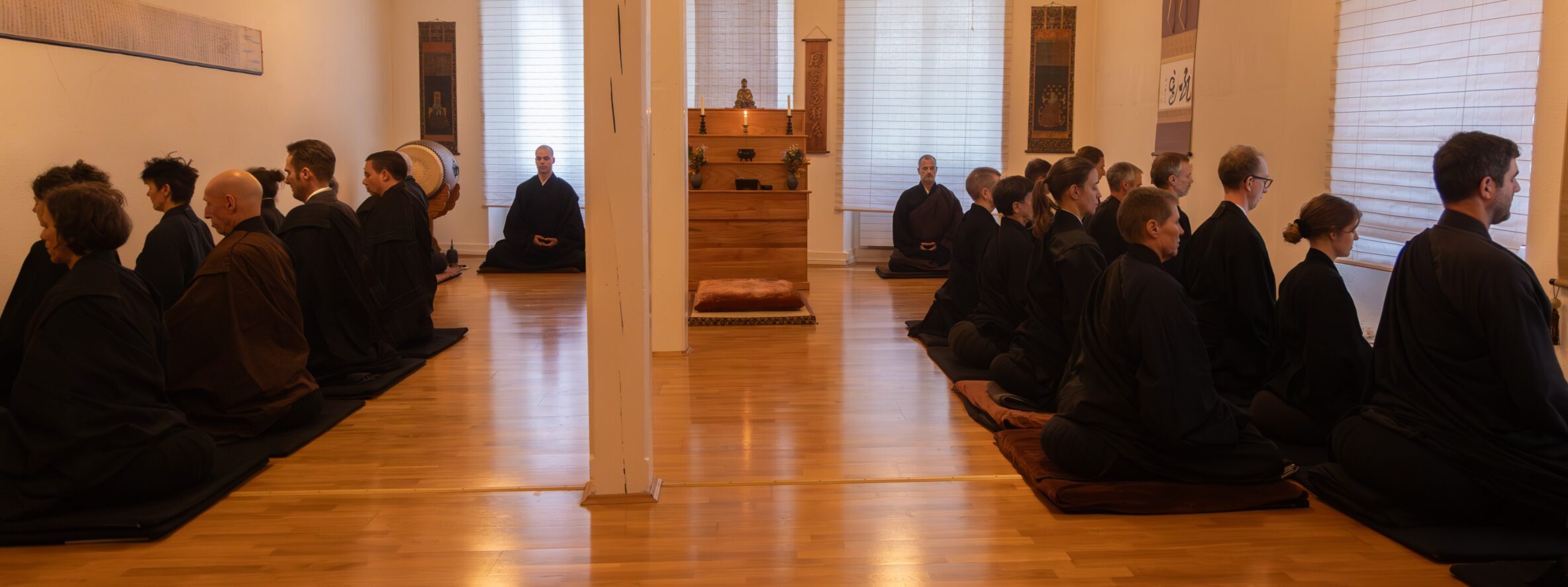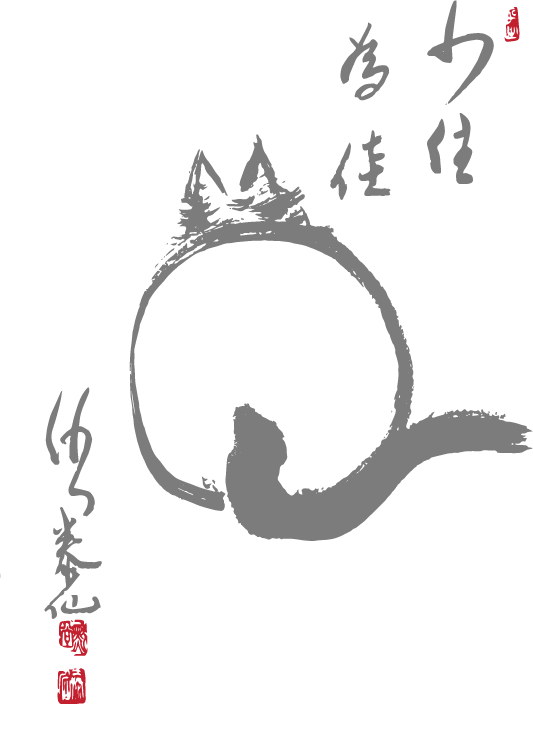Zen is the living experience of Buddha’s enlightenment, which realises in the practice of Zazen through Zazen and continues to have an effect on all aspects of our human life. The word “Zen” designs the clarity of the unrestricted, infinite mind, in which all dualistic categories of the discriminating consciousness are removed: I and the world, mind and matter, form and essence, existence and time. Zazen is the meditative posture in which the Buddha understood the origin of sufferance and freed himself from it.
Zazen means to just sit, it is just sitting in the posture of the Buddha, concentrating on the body, the breathing, and to open oneself up to the undivided reality of the present moment. Every detail of the posture has a deep meaning: sitting in the right balance, unmoveable, without looking for anything or running away from anything, the mind stays totally present in the pure, infinite presence of being. Not remaining attached to anything, our human being finds back into the experience of fundamental oneness and into the original peace. All naturally, wisdom, energy and true compassion unfold, beyond all entanglements and opposites, in harmony with the Cosmic Order.
Zen is neither theory nor learning a certain method – it is nothing else than to come back to the normal, original state of body and mind, the realisation of the original balance of our existence. Although Zen developed within one of the oldest traditions of humanity, Buddhism, the essence of its message is of universal meaning. Free from any dogmas, not attached to any cultural or historic context, it aims directly and immediately at the human being’s heart, who becomes deeply acquainted with himself, with his true nature during the stillness of Zazen, hence revealing more and more the true, deep inner freedom and happiness of his or her life.


